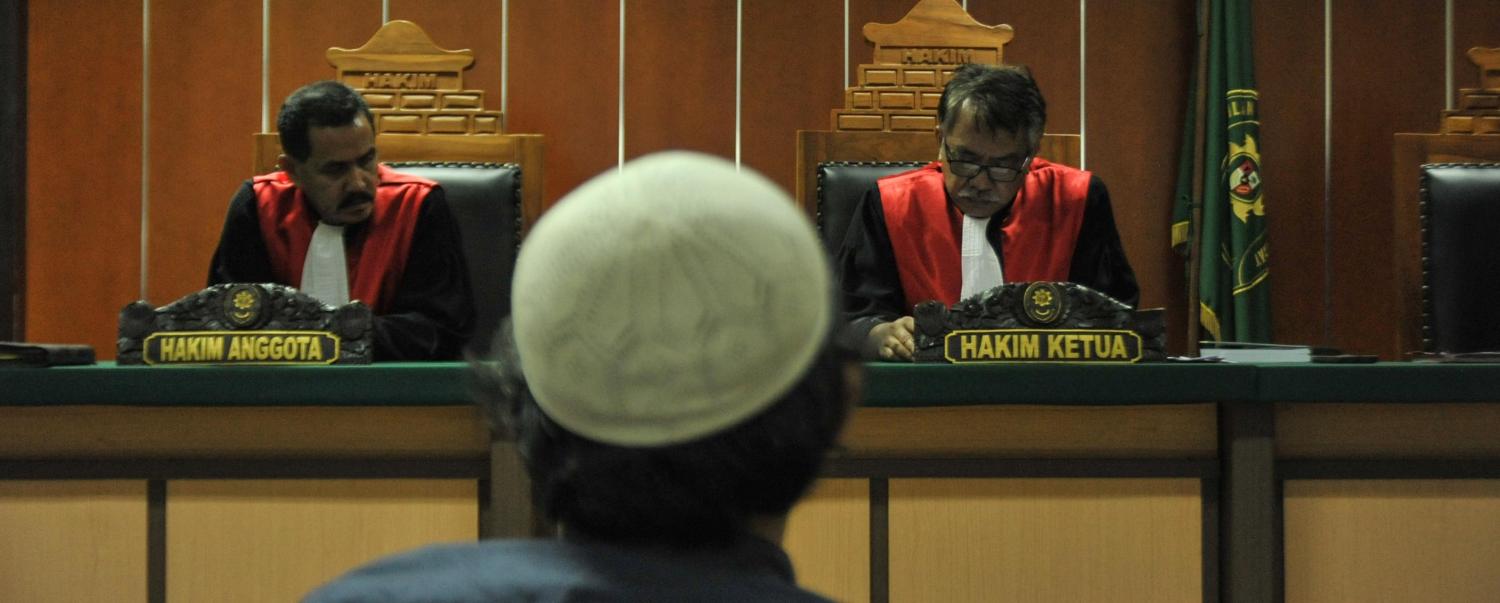Indonesia is currently gripped by news about plans to revise the country’s criminal code (RKUHP). This could see draconian new laws passed in the country that include making cohabitation between unmarried couples illegal, criminalising homosexual acts, and the introduction of prison terms for adultery. Many are worried by the proposals, including Indonesian human rights lawyer Veronica Koman:
This must be stopped. The current draft revision of the law is unconstitutional in many ways and should be taken for judicial review to the Constitutional Court immediately if it is successful.
The original code dates back to the Dutch colonial period, and the path taken to arrive at these proposals has been long and confusing. Potential revisions have been in the works for a long time, and in recent years revisions have been discussed periodically, only to be quietly shelved or postponed indefinitely.
A media firestorm errupted at the end of January, however, when outlets including Reuters, who claimed to have seen a copy of the new text, highlighted some of the issues the draft looks to revise. In February, the House of Representatives (DPR) met with the government and agreed to some of the proposed revisions, such as making sex outside marriage illegal. Koman highlights how revisions to overturn the code were once considered at in a positive light:
In the beginning, the spirit to revise the centuries-old Dutch colonial law was very welcomed by civil society. It started to go downhill last year when conservatism began to creep in and started being used as a political tool by some politicians.
Indonesia often sees this kind of political chest-thumping in the lead-up to flashpoint elections. The country is currently in election season, ahead of polls in June to elect regional governors. During election periods, political parties often take a more devout moral tone in an effort to demonstrate their religious piety. Yohanes Sulaiman, politics and security analyst and lecturer at Universitas Jenderal Achmad Yani, said the posturing around the criminal code was aimed at attracting the so-called religious voters.
This is reflected in one draft of the document dating from last year which has annotations by the different political parties. One example is the now infamous Article 484e, which would make sex between a man and a woman who aren’t married illegal. On the annotated version of the proposed code, three of Indonesia’s main political parties – Golkar, PDIP, and Hanura – call for the law to be deleted, labelling it “overcriminalisation” and saying that it “goes too far in controlling the private lives of Indonesian citizens”.
Members of the House of Representatives also seem to be hedging their bets. While they have agreed to the new law that would make sex before marriage illegal, they have added a clause that would mean only parents, children, or a husband or wife could actually file a complaint, meaning that members of the general public would not be allowed to report unmarried couples to the authorities.
Although this concession waters down Article 484e, it also makes it nebulous. Under the revisions, an unmarried couple living together without their parents’ blessing could be reported to the authorities and charged, while another couple could continue living together as long as no one reports them. What, then, is the point of having the law at all?
The new proposals are causing widespread concern. All the political parties have now stated publicly that they stand behind the new draft, in a strange reversal of their private viewpoints. Social media savvy Indonesians have rallied behind a hashtag #Saya juga bisa jadi korban, or “I, too, could become a victim”. But it is hard to see how many of these laws can logically be enacted, given the size of the country; its mixed population and minority groups who are not Muslim; and its large numbers of expatriates and tourists.
To confuse matters even further, several high-profile figures, including the deputy head of the DPR, Fahri Hamzah, and DPR member Junimart Girsang, have spoken out against some articles in the new draft criminal code, citing worries that they could be used to persecute individuals. International pressure is also starting to mount, as the United Nations High Commissioner for Human Rights, Zeid Ra’ad al-Hussein, on a visit to Indonesia last week, criticised sections of the draft law which relate to criminalising homosexuality. Indonesia’s National Commission for Human Rights (HAM) has also called for revisions of the code to be postponed.
Perhaps this can offer some comfort to those who oppose the draft code. If this is simply an ill-conceived push to secure the religious vote ahead of the elections, then it could falter as the public backlash grows and members of Indonesia’s political system begin to speak out.
While there is still reason to be circumspect, in Indonesia’s political world of shifting sands, the specifics of the draft code and a firm deadline for its completion are not yet a foregone conclusion.

